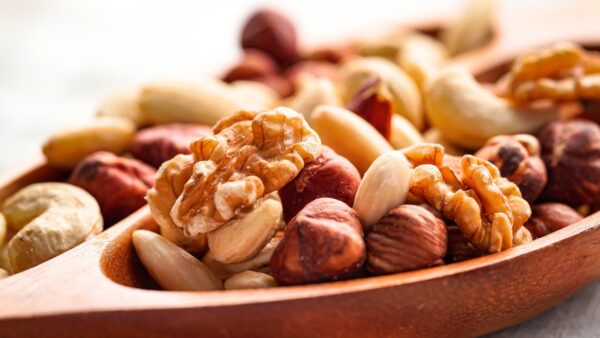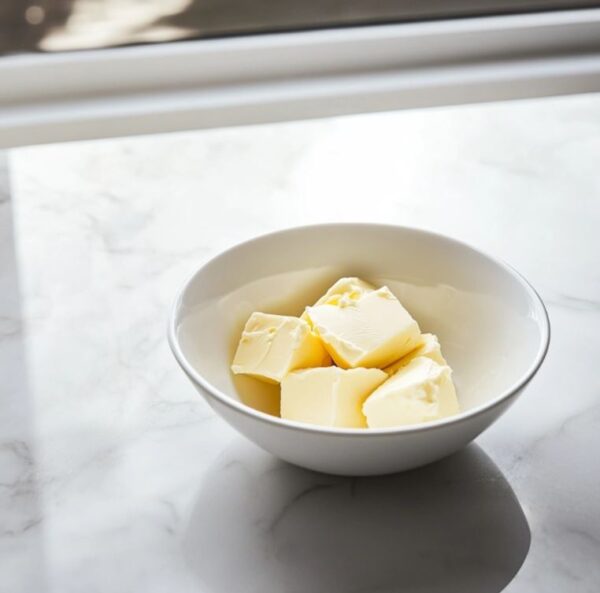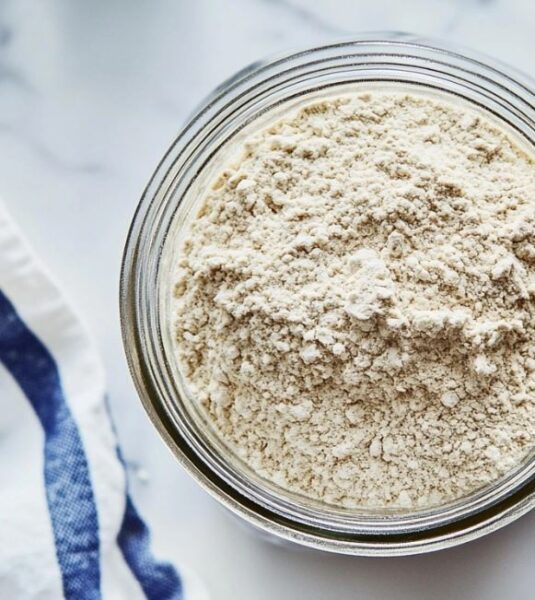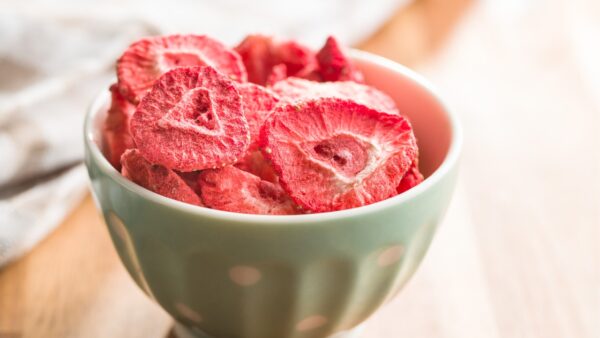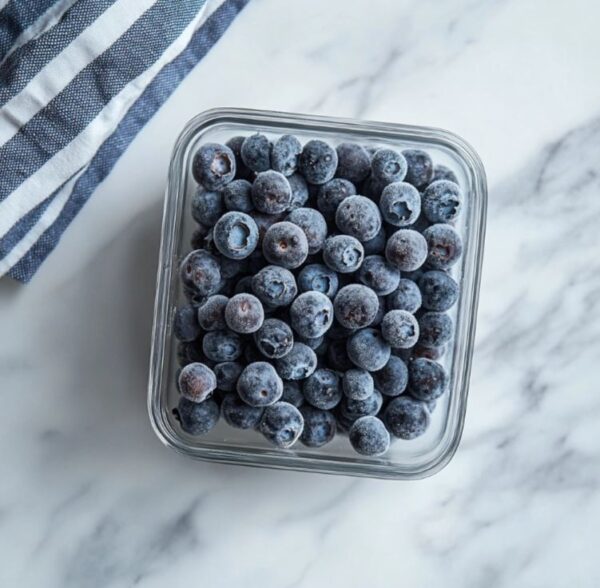20 MILK IDEAS For Overnight Oats 🥛
Are you looking to elevate your overnight oats with the creamiest, most delicious, and nutrient-rich milk options? Look no further! In this blog post, we’ve compiled a list of the best milk ideas for your overnight oats.
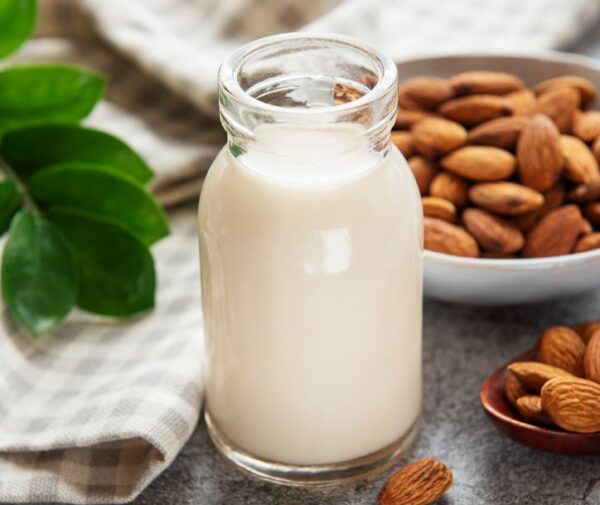
If you’re a fan of classic cow’s milk, exploring dairy-free alternatives, or curious about unique and exotic choices, there’s so many milk ideas for overnight oats.
Here are some popular choices to add to your oats.
Best Milk Ideas For Overnight Oats
1. Cow’s Milk
This is the most common and traditional choice. You can use whole milk, 2% milk, 1% milk, or skim milk, depending on your preference for creaminess and fat content. Whipping cream can also be used by adding water to it at 50/50. Cow’s milk is the star in our Peanut Butter & Raspberry Jam Overnight Oats recipe.
2. Heavy Cream
We use heavy cream in many recipes because it is so velvety. Try using 18% cream for an extra creamy overnight oats breakfast. We use heavy cream at 18% in our popular recipe Blackberries & Cream Overnight Oats.
3. Almond Milk
Almond milk is a popular dairy-free alternative with a mild, slightly nutty flavor. It’s available in both sweetened and unsweetened varieties. Almond milk is a fantastic choice paired with coconut and chocolate, like our Cocoa Coconut Delight Overnight Oats Recipe and Healthy Overnight Oats Recipe.
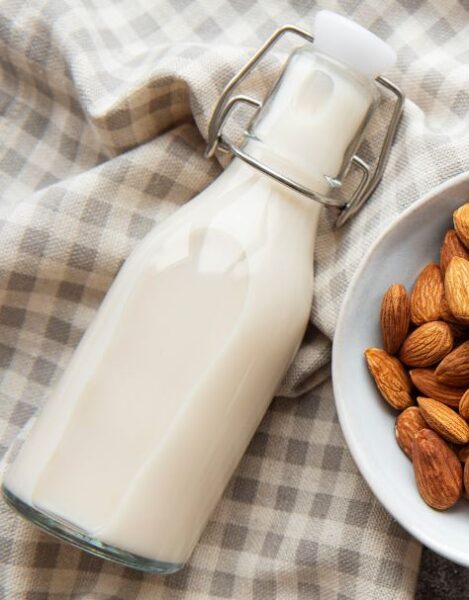
4. Soy Milk
Soy milk is another dairy-free option that provides a good source of plant-based protein. It has a neutral flavor and comes in sweetened and unsweetened versions.
5. Oat Milk
Oat milk is one of the best milk ideas for overnight oats. It is made from oats and has a natural creamy consistency, making it an excellent choice for oat-based recipes like overnight oats. Available in both sweetened and unsweetened versions, oat milk is a creamy, dairy-free option that’s well-loved by those seeking a comforting, cereal-like experience in their oats.
Try our Apple Carrot Overnight Oats recipe and Baked Apple Overnight Oats Recipe that use oat milk as the base.
6. Coconut Milk
Coconut milk is rich and creamy with a tropical coconut flavor. You can choose between canned full-fat coconut milk for an indulgent and thick oatmeal or carton-style coconut milk for a lighter consistency. The delightful coconut notes can add an exotic twist to your overnight oats. We used coconut milk in our Coconut Orange Overnight Oats recipe and these overnight oats with coconut milk.
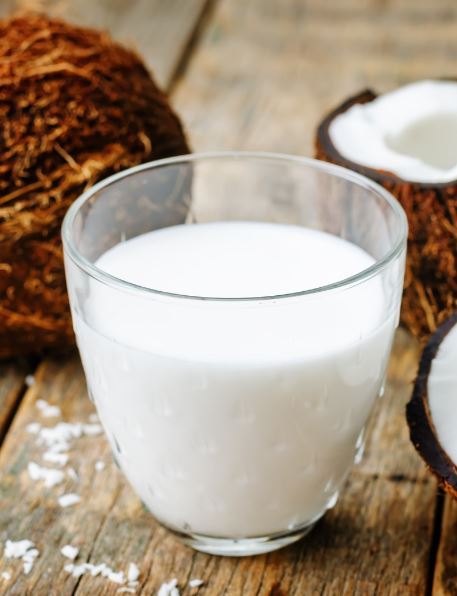
7. Cashew Milk
Cashew milk is a dairy-free alternative that offers a creamy base with a mild nutty flavor. This milk is a great choice if you’re looking to add a subtle nuttiness to your oats without overwhelming the other ingredients.
Its smooth texture blends seamlessly with oats, making for a satisfying and dairy-free breakfast. Cashews are packed full of nutrients and is one of the most popular nuts to add to overnight oats.
8. Rice Milk
Rice milk is a dairy-free milk made from rice. It is celebrated for its neutral taste, making it a versatile choice for overnight oats. With a light and delicate consistency, rice milk can create a gentle, cereal-like background for your oats, allowing other flavors to shine through.
9. Hemp Milk
Hemp milk is a plant-based milk made from hemp seeds. It has a nutty, earthy flavor and is a good source of omega-3 fatty acids. Its unique flavor can provide a slightly earthy and nutty undertone to your oats, adding a touch of richness and nutrition to your morning meal.
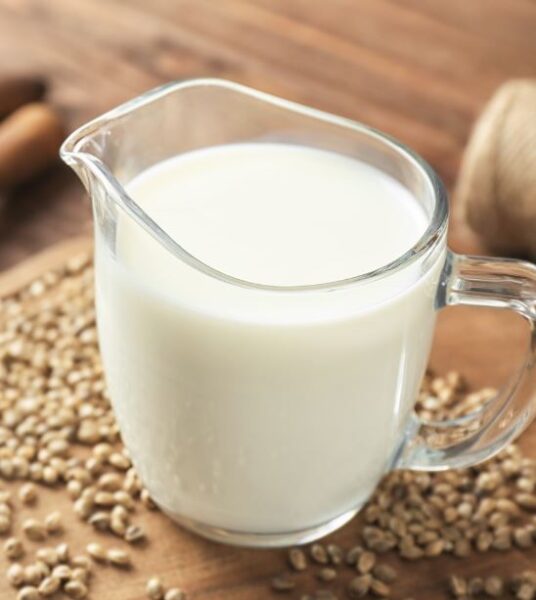
10. Flax Milk
Flax milk is a dairy-free choice crafted from flax seeds. It has a mild, nutty flavor and is often fortified with nutrients like omega-3 fatty acids. Flax milk is a good option for those seeking a nutty undertone in their oats, along with the potential health benefits of flax.
11. Macadamia Milk
Macadamia milk is another dairy-free option known for its creamy and rich consistency. It imparts a pleasant nuttiness that complements the natural flavors of oats, creating a luxurious and indulgent texture in your overnight oats.
12. Hazelnut Milk
Hazelnut milk is a dairy-free alternative with a distinct nutty flavor. It pairs well with oats and other ingredients, infusing your oats with a delicious, slightly sweet nuttiness. It’s an excellent choice for those who enjoy the taste of hazelnuts.
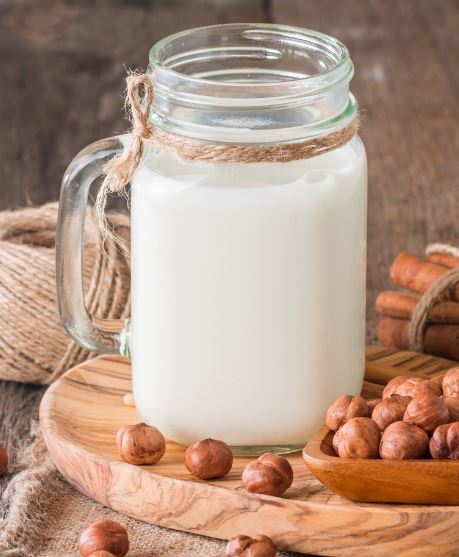
13. Goat’s Milk
Goat’s milk, an alternative to cow’s milk, is regarded by some as easier to digest and may be suitable for individuals with lactose sensitivities. It has a unique and slightly tangy flavor that can add depth and character to your overnight oats.
14. Lactose-Free Milk
This is one of the best milk ideas for overnight oats if you are lactose intolerant. Lactose-free milk is essentially cow’s milk with the lactose (milk sugar) removed. It offers the same creamy texture and dairy flavor as regular cow’s milk but without the lactose, making it a suitable choice for those with lactose intolerance.
15. Evaporated Milk
For a richer, creamier texture in your overnight oats, you can opt for evaporated milk. It’s a concentrated form of cow’s milk with water removed, resulting in a creamier consistency that adds indulgence to your oats.
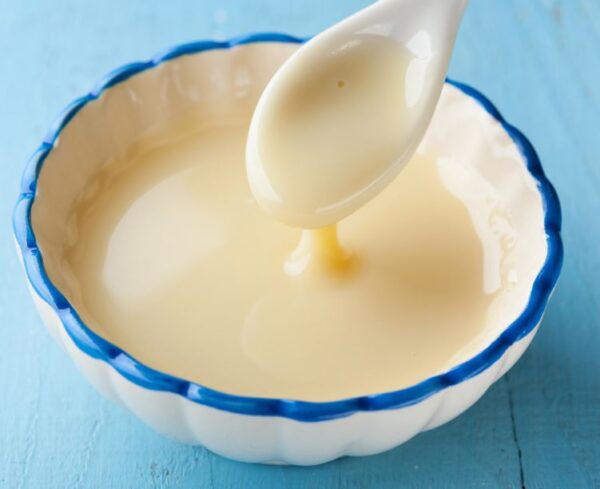
16. Condensed Milk
Condensed milk is thick and sweet, making it an ideal choice for a dessert-like version of overnight oats. It infuses your oats with a sugary, caramelized richness, creating a decadent breakfast treat.
17. Homemade Nut or Seed Milk
You can create your own nut or seed milk by blending nuts (e.g., almonds, cashews) or seeds (e.g., sunflower seeds) with water and straining the mixture. This allows you to customize the flavor and sweetness to your liking, offering a unique and personalized twist to your overnight oats.
18. Quinoa Milk
Quinoa milk is a plant-based milk made from quinoa seeds. It has a mild, slightly nutty flavor and is a good source of protein. While it’s not as widely available as some other milk alternatives, it can be used in overnight oats for added variety.
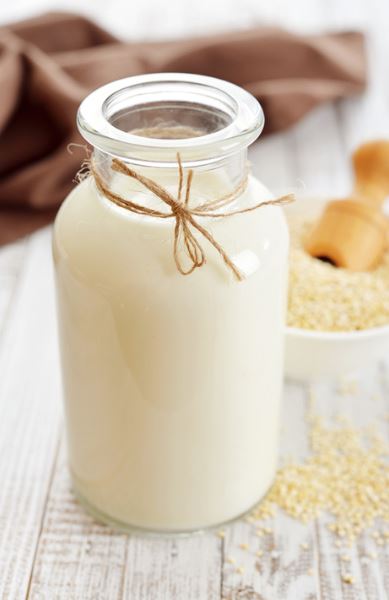
19. Spelt Milk
Spelt milk is derived from spelt, a type of ancient grain. It has a somewhat sweet and nutty taste and can be used as a milk alternative in your oats.
20. Barley Milk
Barley milk is made from barley grains and has a milder flavor compared to some other grain-based milks. It can be a suitable choice for those looking for a different whole-grain milk option.
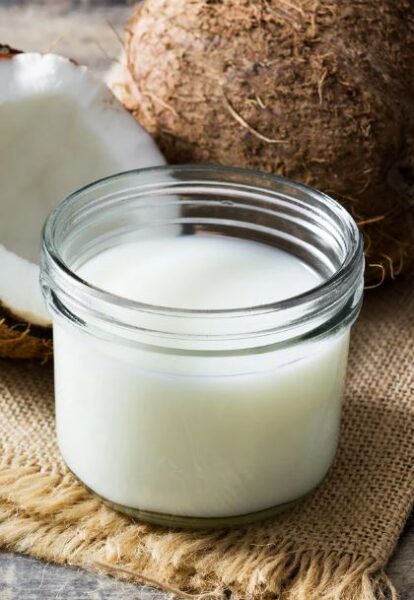
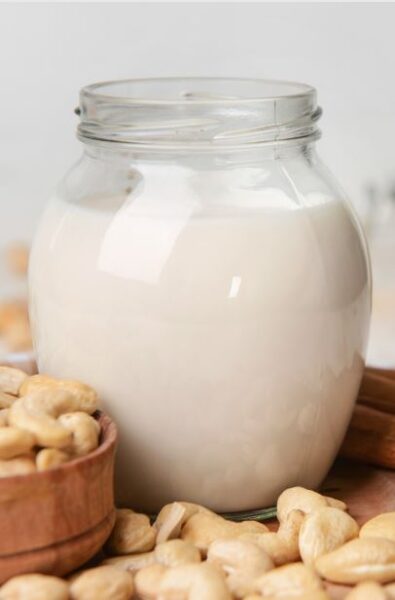
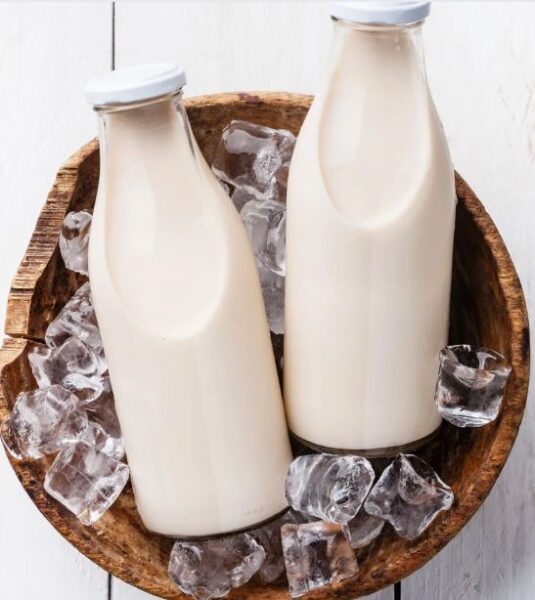
Here are some tips for using milk options in overnight oats:
Consider Your Dietary Preferences: Choose a milk that aligns with your dietary preferences and needs. If you’re lactose intolerant or follow a vegan diet, opt for dairy-free alternatives like almond milk, soy milk, or oat milk. If you prefer traditional dairy, go for cow’s milk or goat’s milk.
Adjust Milk Quantity: The amount of milk you use can significantly impact the texture of your overnight oats. More milk results in creamier oats, while less milk creates a thicker, more spoonable consistency. Experiment with different milk-to-oats ratios to find your preferred texture.
Read our guide on all of the overnight oats FAQ’s.
Flavor Pairing: Select a milk that complements the flavors you plan to add to your overnight oats. For instance, almond milk pairs well with nuts and berries, while coconut milk can enhance tropical or chocolate-themed oats. The right milk can enhance the overall taste of your oats.

Sweetness Levels: Some milks, especially plant-based options, come in both sweetened and unsweetened varieties. Pay attention to the sweetness level of your milk, as it can affect the overall sweetness of your oats. Adjust the amount of sweetener you add accordingly to achieve your desired taste.
Shake or Stir Well: Ensure that you thoroughly mix the milk with the oats and other ingredients. Shake or stir the mixture well to distribute the milk evenly. This step makes it so you get all of those dry pockets of oats for a consistent and creamy texture throughout your overnight oats.
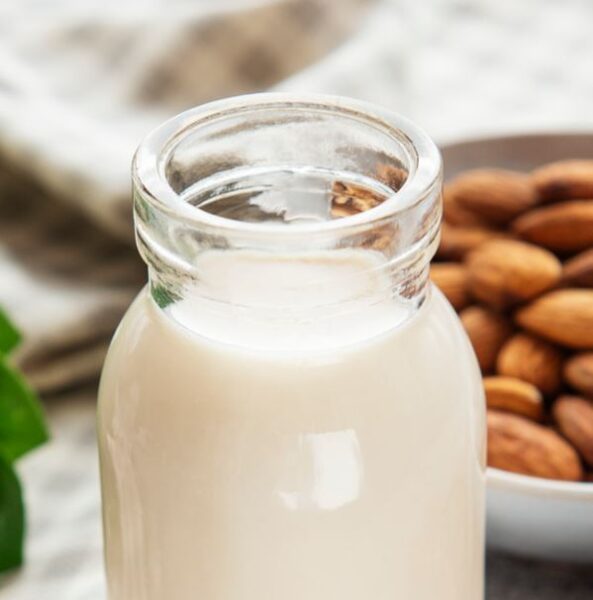
FAQ’s About Using Milk In Overnight Oats
1. Can I use any type of milk for overnight oats?
Yes, you can use a variety of milk options, including cow’s milk, almond milk, soy milk, oat milk, coconut milk, and more. Your choice depends on your taste preferences and dietary restrictions.
2. Do I need to use dairy milk for the best results?
Not at all! Many people enjoy overnight oats made with non-dairy milk. Plant-based milk alternatives can create creamy, flavorful oats without the use of dairy.
3. How much milk should I use in my overnight oats?
The amount of milk you use depends on your preferred oat-to-liquid ratio. A common starting point is a 1:1 ratio of oats to milk; however, you can adjust this to make your oats thicker or creamier as desired.
4. Should I use sweetened or unsweetened milk?
It depends on your taste. If you prefer sweeter oats, you can use sweetened milk. For more control over the sweetness, choose unsweetened milk and add your preferred sweeteners (e.g., honey, maple syrup, sugar) separately.
5. Can I mix different types of milk in my overnight oats?
Absolutely! Mixing different milk varieties can create unique flavor profiles. For example, you can combine almond milk with coconut milk for a delightful nutty and tropical blend.
6. Is it necessary to heat the milk before adding it to my oats?
No, heating the milk isn’t necessary for overnight oats. Simply pour your chosen milk over the oats and other ingredients, and the mixture will soften and thicken as it sits in the refrigerator overnight.
7. Are there any milk options to avoid for overnight oats?
While there are no strict rules, extremely savory or strongly flavored milks may not be the best choice for sweet or fruity overnight oats. However, personal taste varies, so it’s worth experimenting.
8. Can I use flavored milk, like chocolate or vanilla, for my oats?
Flavored milk can add an extra layer of taste to your oats. Just keep in mind that it may influence the overall flavor, so choose a flavor that complements your intended oatmeal mix.
9. How long can I store overnight oats in the refrigerator with milk?
Overnight oats are typically good for up to 4-5 days when refrigerated. Beyond that, the texture and flavor may change, so it’s best to prepare them in smaller batches if you plan to enjoy them over several days.
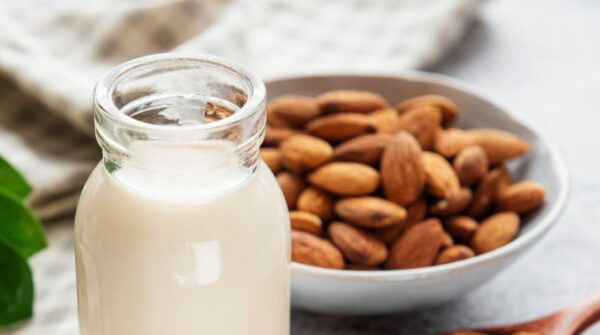
In Closing: Who knew there would be so many options to choose from when it comes to something as seemingly simple as the milk for your overnight oats?
It’s a delightful surprise that the world of milk is so diverse, offering a wide array of flavors and dietary considerations to cater to everyone’s unique tastes and preferences.
The sheer variety is a testament to the richness of culinary possibilities. So, let’s embark on this journey of creative recipes that best complements your dreamy, creamy bowl of overnight oats!


